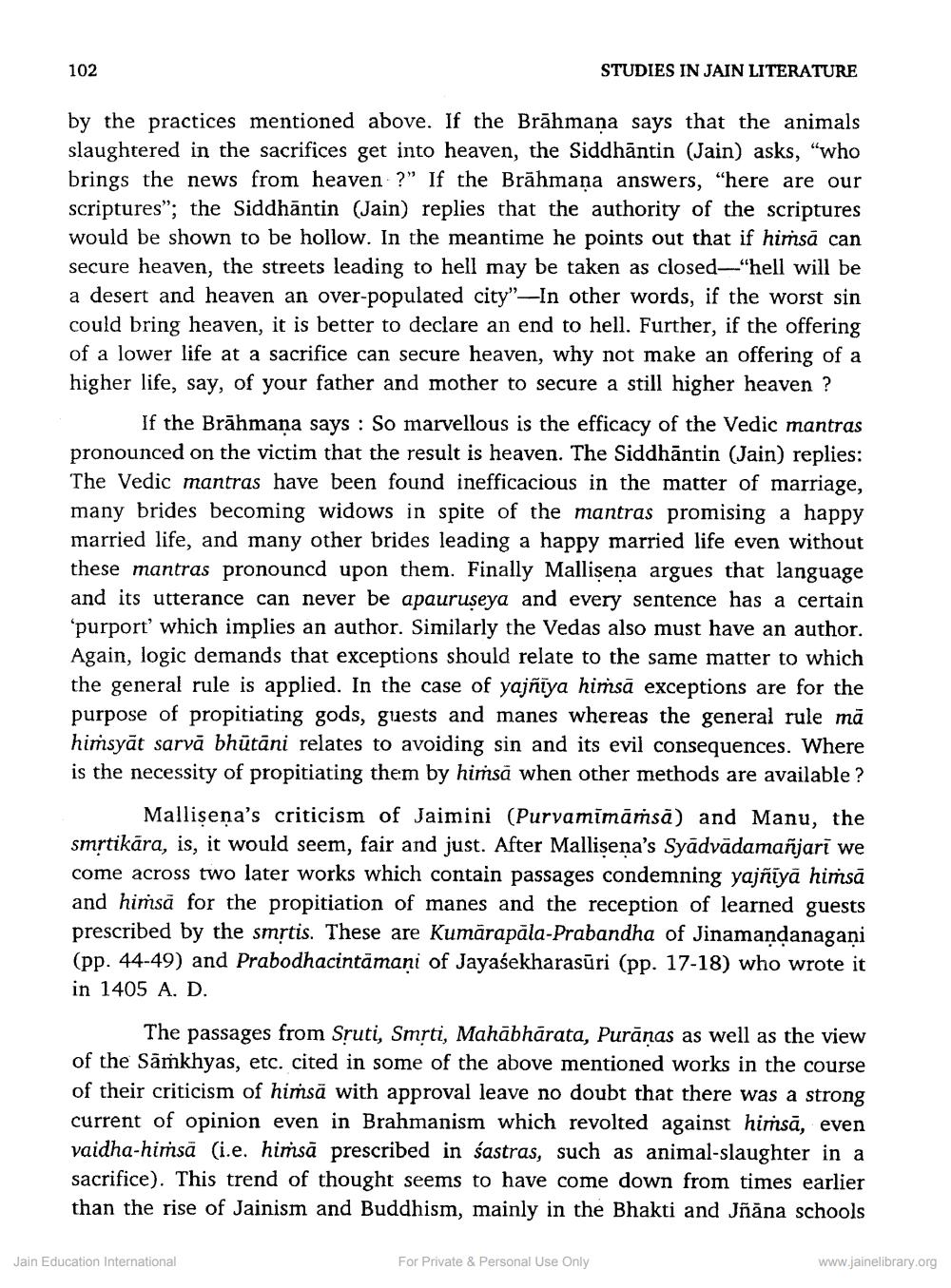________________ 102 STUDIES IN JAIN LITERATURE by the practices mentioned above. If the Brahmana says that the animals slaughtered in the sacrifices get into heaven, the Siddhantin (Jain) asks, "who brings the news from heaven?" If the Brahmana answers, "here are our scriptures"; the Siddhantin (Jain) replies that the authority of the scriptures would be shown to be hollow. In the meantime he points out that if himsa can secure heaven, the streets leading to hell may be taken as closed--"hell will be a desert and heaven an over-populated city"-In other words, if the worst sin could bring heaven, it is better to declare an end to hell. Further, if the offering of a lower life at a sacrifice can secure heaven, why not make an offering of a higher life, say, of your father and mother to secure a still higher heaven? If the Brahmana says : So marvellous is the efficacy of the Vedic mantras pronounced on the victim that the result is heaven. The Siddhantin (Jain) replies: The Vedic mantras have been found inefficacious in the matter of marriage, many brides becoming widows in spite of the mantras promising a happy married life, and many other brides leading a happy married life even without these mantras pronouncd upon them. Finally Mallisena argues that language and its utterance can never be apauruseya and every sentence has a certain 'purport' which implies an author. Similarly the Vedas also must have an author. Again, logic demands that exceptions should relate to the same matter to which the general rule is applied. In the case of yajniya himsa exceptions are for the purpose of propitiating gods, guests and manes whereas the general rule ma himsyat sarva bhutani relates to avoiding sin and its evil consequences. Where is the necessity of propitiating them by himsa when other methods are available ? Mallisena's criticism of Jaimini (Purvamimamsa) and Manu, the smrtikara, is, it would seem, fair and just. After Mallisena's Syadvadamanjari we come across two later works which contain passages condemning yajniya himsa and himsa for the propitiation of manes and the reception of learned guests prescribed by the smrtis. These are Kumarapala-Prabandha of Jinamandanagani (pp. 44-49) and Prabodhacintamani of Jayasekharasuri (pp. 17-18) who wrote it in 1405 A. D. The passages from Sruti, Smrti, Mahabharata, Puranas as well as the view of the Samkhyas, etc. cited in some of the above mentioned works in the course of their criticism of himsa with approval leave no doubt that there was a strong current of opinion even in Brahmanism which revolted against himsa, even vaidha-himsa (i.e. himsa prescribed in sastras, such as animal-slaughter in a sacrifice). This trend of thought seems to have come down from times earlier than the rise of Jainism and Buddhism, mainly in the Bhakti and Jnana schools Jain Education International For Private & Personal Use Only www.jainelibrary.org




